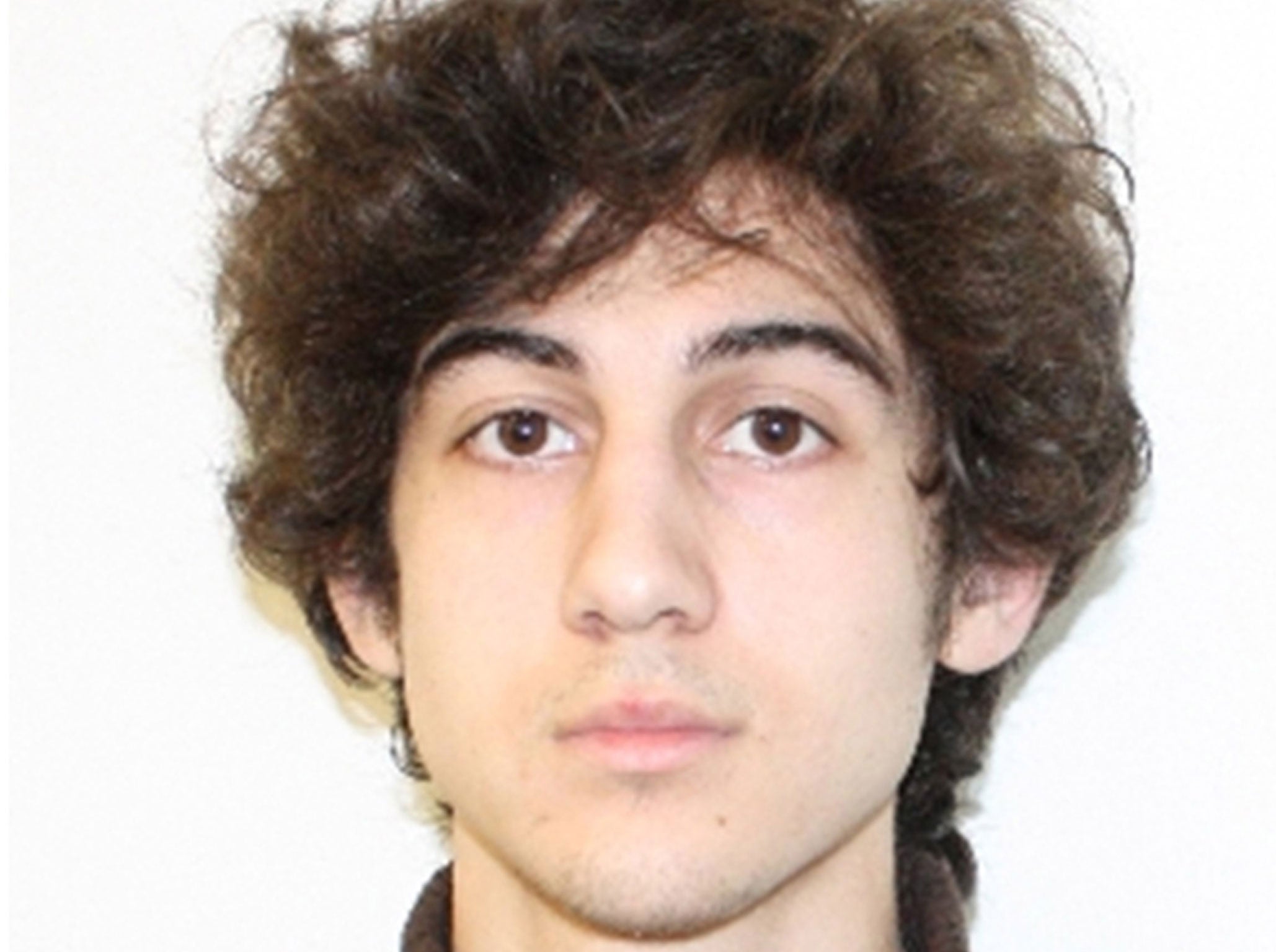Boston Marathon bombing: Jury selection in trial of Dzhokhar Tsarnaev to begin on Monday
Jury selection alone could take weeks to complete

Almost two years after two explosions tore through the Boston Maraton, killing three people and injuring more than 260, the formal trial process is to begin on Monday with the selection of a jury.
Jurors selected from a pool of up to 1,200 individuals will determine whether or not Dzhokhar Tsarnaev planned and carried out the double-blast attack at the race’s finishing line. The attack sent a wave of panic and anxiety throughout the US.
Mr Tsarnaev, 21, originally of Chechen descent, was detained four days after the bombing following a man-hunt by police. His elder brother, Tamerlan Tsarnaev, 26, who police say was also involved in the bomb attack, was killed in a shoot-out with officers.
Prosecuors say Dzhokhar and Tamerlan Tsarnaev, who had lived in the US for a decade, carried out the bombings on April 15 2013 as retaliation for US actions in Muslim countries. Mr Tsarnaev faces more than 30 different charges related to the bombing and his flight from police, and could be given the death penalty if convicted. In addition to the bombing itself he is charged with killing of a Massachusetts Institute of Technology police officer, from whom he and his brother allegedly tried to steal a firearm.
The Associated Press said that the trial was perhaps the most closely watched federal death penalty case since that of Timothy McVeigh, who was convicted of the 1995 Oklahoma City bombing. McVeigh was put to death by lethal injection at a federal facility at Terre Haute, Indiana in June 2001.
It said prosecutors say their evidence against Mr Tsarnaev, who was studiyng marine biology at the University of Massachusetts, includes a hand-scrawled confession that he wrote while hiding, badly wounded, inside a boat as police searched for him. They say they also have video footage that shows him placing a backpack with a bomb a few feet from a little boy who died when it exploded seconds later.
For many months, Mr Tsarnaev’s lawyers tried to have the trial moved from Boston, saying it would be impossible for him to get a fair trial. McVeigh's case was moved to Denver for similar reasons.
But District Judge George O'Toole Jr has declined to agree to their demands. Last week, the lawyers failed again when the 1st Circuit Court of Appeals ruled that the defence had not met the “extraordinary” standard that would be required to delay the trial.
Mr Tsarnaev's defence team is being led by the celebrated lawyer Judy Clarke, considered one of the US's leading death penalty specialists.
Her clients have included Unabomber Ted Kaczynski, Atlanta Olympics bomber Eric Rudolph, and Jared Loughner, the man who wounded former US Rep. Gabrielle Giffords in a 2011 shooting rampage in Tucson, Arizona. All received life sentences instead of the death penalty.
The lawyers have not revealed their defence strategy, said the Associated Press. In court filings, they have focused on evidence they hope will persuade a jury to spare his life. His defenders have focused on the story of a difficult childhood in a former Soviet republic and his radicalisation at the hands of an influential older brother who could have pressured him into participating in the attack.
Jury selection alone is expected to take several weeks because of extensive media coverage and the thousands of athletes, spectators and others in the area personally affected by the bombings. The process also could be slowed if potential jurors express objections to the death penalty.
Christopher Dearborn, a professor at Suffolk University Law School, said the lawyers could raise any persecution Mr Tsarnaev’s family might have suffered as ethnic minorities in Kyrgyzstan, where the brothers spent most of their lives before moving to the US with their parents and two sisters.
“I think the real value in that may be to start to try to generate even a little bit of empathy around this and humanise the kid a little bit, hopefully enough to save a life,” he said.
Among those planning to attend at least part of the trial is Heather Abbott, from Newport, Rhode Island. She lost part of her leg in the attack and said she knew that many people affected by the blasts were going to be giving evidence.
She told WPRI 12 news: “I want to be there to support them and I think this is my only chance to kind of experience what this might bring for me, if it’s any sort of closure.”
Subscribe to Independent Premium to bookmark this article
Want to bookmark your favourite articles and stories to read or reference later? Start your Independent Premium subscription today.

Join our commenting forum
Join thought-provoking conversations, follow other Independent readers and see their replies